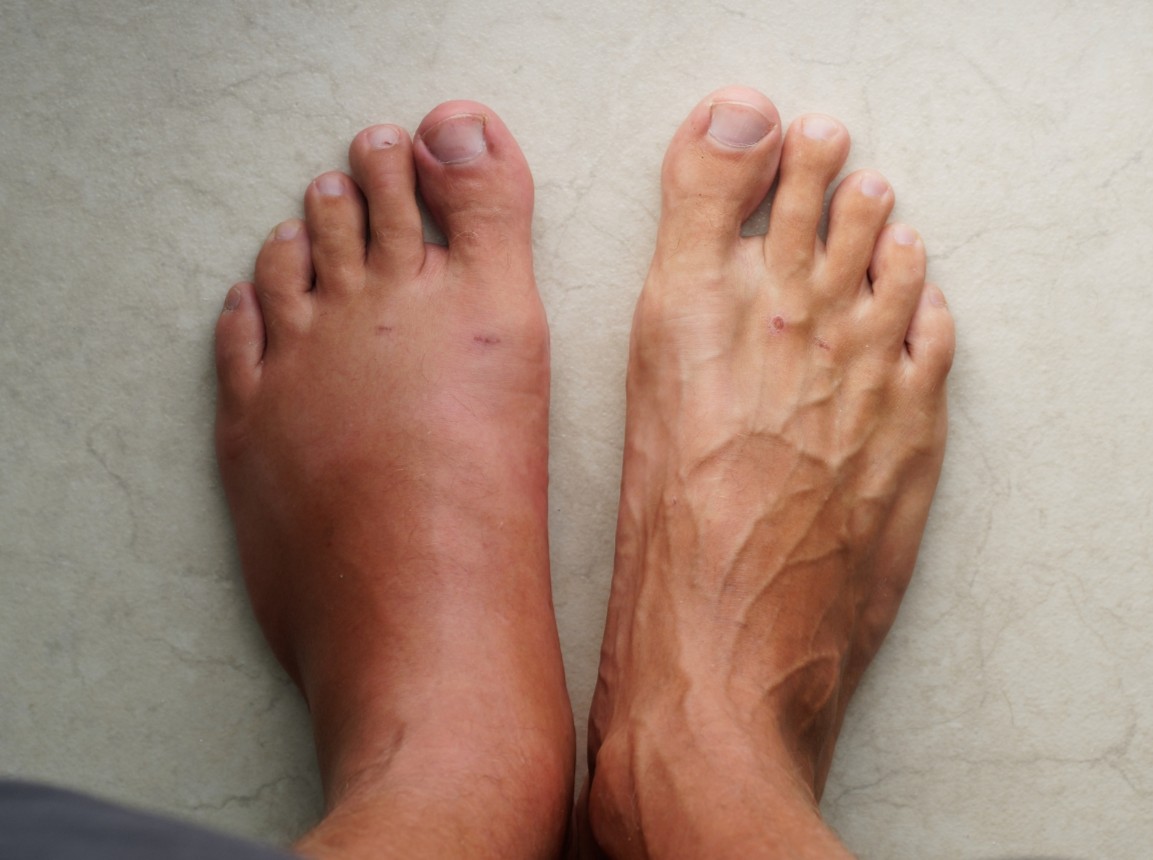

Sometimes, temporary swelling can be caused by:
Try this:
Your veins have a tough job: they must push blood from your legs back up to your heart against gravity. They do this using tiny valves that help keep blood moving in the right direction.
But over time, especially if you sit or stand for long periods or have certain risk factors, these valves can become weak or damaged. When this happens, blood pools in the legs, leading to swelling, varicose veins, cramping, or even skin changes like thickening or ulcers.
What helps:
Swelling in just one leg — especially if it's sudden and painful — could be caused by a deep vein thrombosis, or DVT. This is a blood clot in a deep vein, and it’s a medical emergency.
In addition to swelling, a DVT might cause:
Why it matters: A clot can travel to the lungs and cause a pulmonary embolism, which is potentially life-threatening. If you suspect a DVT, get medical help right away.
If your heart isn’t pumping efficiently due to heart failure or other cardiac conditions, fluid can back up in your legs, causing swelling. This type of swelling usually happens on both sides and may be accompanied by:
When to act: If you're experiencing leg swelling and any of these symptoms, talk to your doctor as soon as possible.
Swelling during pregnancy is extremely common. Your body retains more fluid, and the growing uterus puts pressure on veins in your abdomen, which can slow blood flow from your legs.
However, sudden or severe swelling could be a sign of preeclampsia, a dangerous condition involving high blood pressure.
Call your doctor if you also have:
Both the liver and kidneys help manage your body's fluid balance. If either isn’t functioning properly, fluid can accumulate in your legs especially around the ankles.
Look out for other signs like:
If you notice swelling along with other symptoms, a check-up and some bloodwork can help clarify what’s going on.

Occasional mild swelling isn’t usually serious. But see a doctor if you notice:
Swelling is your body’s way of telling you something whether it's a lifestyle tweak or a deeper issue. Listen to it.

Valentine’s Day is about love, appreciation, and thoughtful gestures but let’s be honest, most gifts don’t last longer than a week. This year, choose something different. Choose a gift that offers comfort, confidence, and real care: a Medical Pedicure.
.jpg)
Every year on October 8th, the world celebrates International Podiatry Day - a day dedicated to
raising awareness about foot health and the vital role that podiatrists play in our overall well-being.
Keeping your family on their feet and helping them to walk, run, play and exceed their goals is why we love getting up in the morning.
Ground Floor, One Health Building
122 Remuera Rd, Remuera
Auckland 1050, New Zealand
| MON - FRI | 7:30am – 6:30pm |
| SAT | 8:30am – 4:30pm |
| SUN | Some availability |
Make an Appointment
Online Schedule
Our virtual receptionist is available 24/7 to help with general questions, booking requests, and clinic information, even when our team is busy, or it's after hours.
Whether you're calling us or using our website, you'll get fast assistance any time of day. And if your query needs a personal touch, a member of our team will follow up as soon as possible.
If you’d like to see a podiatrist who speaks your preferred language, just give us a call and we’ll help you book.